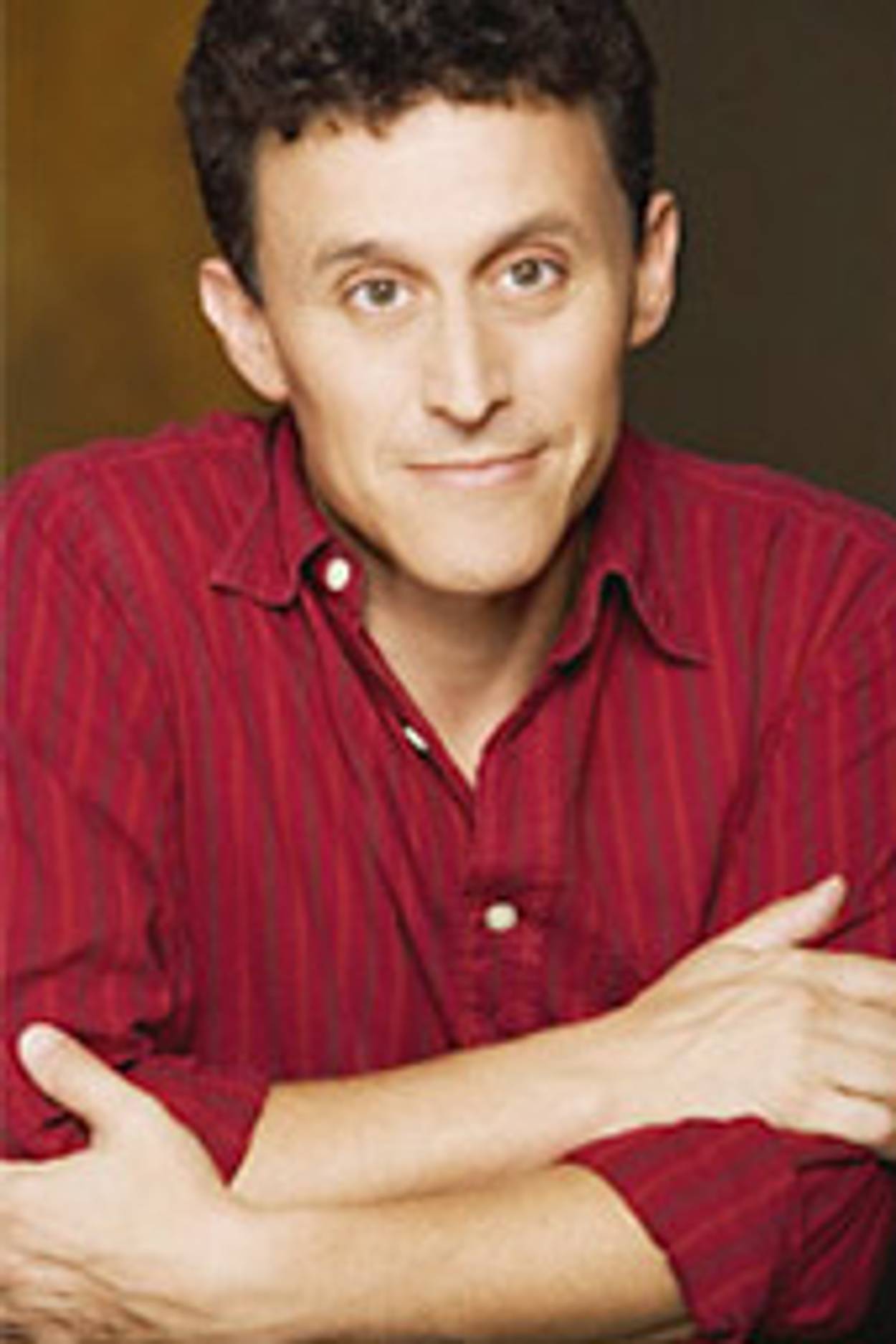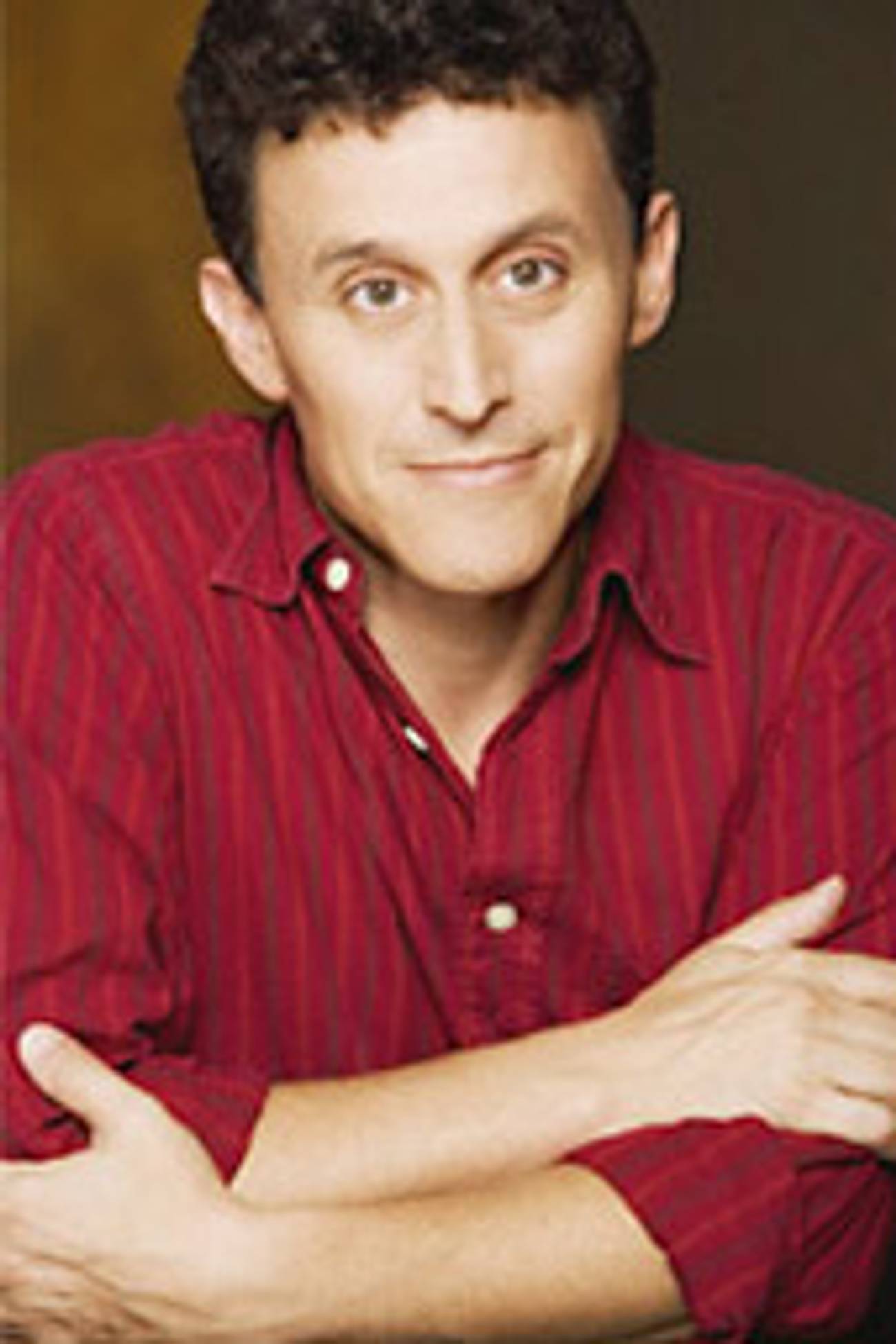Love Story
Moving from translation into fiction, Evan Fallenberg conjures an unlikely romance




Cleveland native Evan Fallenberg moved to Israel after finishing college in 1985, intending to study Hebrew for a year before settling in Paris. Twenty-odd years later, he’s still there, and has become one of the country’s most prominent translators, producing elegant English versions of such novels as A Pigeon and a Boy, the latest from Meir Shalev, and Beaufort, Ron Leshem’s bestselling 2006 war saga (the film adaptation is nominated for an Oscar this year). Now, Fallenberg has written his own novel, Light Fell, released last month by Soho Press. Set in Israel, it tells the story of Joseph Licht, an Orthodox, Harvard-educated, literature professor who in 1977 leaves his wife, Rebecca, and five small sons after falling in love with an Orthodox rabbi, also married with children, whom he meets at one of the rabbi’s enormously popular lectures in Jerusalem. The novel opens on Joseph’s fiftieth birthday, before a Shabbat dinner that will bring him and all of his children together for the first time in twenty years.
The book starts with Joseph’s party preparations and culminates with a momentous Shabbat dinner. Did you have Virginia Woolf’s Mrs. Dalloway in mind when you determined this narrative structure?
I wish I could say yes, but no, absolutely not. As a matter of fact, I didn’t read Mrs. Dalloway until after The Hours, and after I’d completed the first draft. And I’ll bet if I’d known it, I would have been too afraid of falling into some kind of a trap about it. So ignorance is bliss.
The title of the book comes from the translation of an Aramaic phrase, nafal nehora, which appears in the Talmud and means “light fell” or “light was sown.” How did you learn about it?
I came across it in an article that was must have been in Ha’aretz. It was an idea put forward by Admiel Kosman, an Israeli poet and Talmud scholar now at Potsdam University in Germany. The idea of it—in the Talmudic stories it refers to the power of sudden arousal or physical beauty—captured me. In the article, he definitely mentioned those stories about nafal nehora, which in the novel Rabbi Rosenzweig tells Joseph. So it was pretty clear to me that they had portent, and that I could make use of them.
How did the character of Rabbi Yoel Rosenzweig evolve?
I think I’d been looking to do something extreme. I don’t mean in terms of gimmick, or attracting attention. Joseph and Yoel are two men who love God and love everything that means: Jewish law, Halacha, Jewish ritual, everything. And if they’d been any less in love—with God, I mean—then their story couldn’t have worked. They could just abandon their religion and their relationship with God and go off happily because they’ve met the person of their dreams. It was very central to me to have a character that could look God in the eye and say, “What do you want from me? What? What am I supposed to understand from this?” And I don’t think that argument could have worked with anybody less extreme—in his talents, and his love for God—than Yoel.
The Rabbi is a very impressive figure, extraordinarily erudite, renowned as a Torah scholar and considered a genius. How did you get into his mind?
This was scary for me, how could I ever make this guy walk and talk and think? I had heard about Rabbi Steven Greenberg, the openly gay Orthodox rabbi and author of Wrestling With God and Men. This was long before his book came out and was actually when he was still on his way out, as it were, of the closet. I made contact with him and asked if he would be willing to meet with me. He helped me get far into the mind of this character and helped me get Yoel to act in the way that he does. He really helped unlock that character for me.
In the book, Joseph continuously grapples with the severe repercussions of leaving his family. Has he come to terms with balancing desire and self-realization against commitment and duty?
I don’t know, really. I think there’s still enough that’s not resolved, and, of course, his life isn’t over. I see his sons as balls being juggled in the air. And they’re all spinning around up there, and they’re up and down, and all around, and there’s no complete revolution. So, he’s come to some sort of a plateau, where maybe there is a little bit of understanding. Maybe he’s pushed them, and himself, to a new place. But, I think Joseph is wise enough to know that that’s not the end of the story, and that there’s still a ways to go.
Five sons is a lot of sons. Why so many?
That’s an important point to me. A big publisher that showed interest five years ago when my agent first sent the manuscript out had suggested I remove two of the boys. And at first, I thought, that’s offensive, because when you create characters they take on a life. But beyond that, it was really important for me to have this critical mass, which I didn’t think would work if they were only three. Joseph had to be overwhelmed by the noise in the house. And in Israel, it’s not unusual to have five boys. I know lots of people, actually, even with only a five-year spread between the oldest and the youngest. But in America, it is pretty unusual. It was kind of shocking to some of the readers.
Some critics have noted, for better or for worse, that the boys represent a cross-section of Israeli society: a plumber, an army officer, an ultra-Orthodox yeshiva student living in Mea She’arim, a settler, a fashion model.
I ran into the danger of making each one representative of a sector, but I wanted to create real people who go off in very different directions. Israeli society tends to be very compartmentalized, unfortunately. There are a lot of disadvantages to the fact that Israelis look at people and, by the size and color of the kipa on your head or, for a young woman, where her dress falls between her knee and her feet, and what color and material it is, they can tell exactly where the person lives, what their political ideology is, what schools they go to, who they associate with. And so you do find lots of families with these kinds of hybrids.
Also what fascinates me in all literature is the whole idea of a life just moving along on what seems to be a particular track, and then boom, something comes along and explodes the tracks, and a character goes off in a different direction. You could say that about Joseph. It’s not just this bomb he detonates in his life but in the lives of all the people around him. So it seems perfectly logical to me that one son will become a secular person, another will become very religious, and so on. It certainly makes it a richer family, with richer characters.
You’re a dual citizen. Your novel is set in Israel but published in the United States, coming out in Israel later this year. Do you consider yourself an American or an Israeli novelist?
I’m an Israeli novelist who writes in English. Frankly, I don’t think I’d be qualified to write an American novel at this point in my life. I’ve lived away from America for too long. I don’t know what the Israelis are going to make of me, because I’m kind of an odd fish here, really, an Israeli novelist writing not in Hebrew. But Israel is an immigrant society, and I think it can handle these very different kinds of writers. It’s interesting, because the Sapir Prize, one of Israel’s biggest literary prizes, just last year announced that for 2008, it will be open to books by Israeli authors not only in Hebrew but in all the other official languages in the country, which are Arabic, English, and Russian. And I think that’s a real sign of maturity for Israel. It wasn’t so long ago that you were advised never to speak the language of your birth country, because kids had to integrate, and you’d be separating them from Israeli society if you didn’t integrate. And it’s just not like that anymore.
How did you get into translating?
That actually came after the writing, through my agent who works with many of Israel’s best writers. It was something I knew I always wanted to do, and I love it. I mean, I don’t see my translating work as something to do in between, waiting for a novel to come out. It’s something I believe in, it’s a vocation, an avocation, and I have a bit of a sense of mission about it, because if you’re working with a new writer, somebody who hasn’t yet been discovered by anybody
outside of Israel, you have the opportunity to bring them to that point. I have a hand in that, and it’s very exciting, it’s very gratifying to help these really talented young writers to get out there to a bigger audience.
When Alan Hollinghurst won the Booker Prize in 2004 for The Line of Beauty, people called it a triumph for gay literature, because it had been brought into the mainstream. Do you think of your novel as part of a gay subgenre?
When my book was coming out, one of the places it appeared first was on Amazon. And every time when I clicked on where it says, “Customers who bought this book also bought,” it wound up in gay erotica. All the pictures of the other books listed there had half-naked men in all kinds of poses, and I thought, “I can’t believe I’m being put into that category.” I mean, I don’t think that’s the kind of book I wrote, and as a matter of fact, I think the customers who bought those books will be sorely disappointed if they buy my book. Of course, I’m happy for every reader who comes along. But I do hope that this book will transcend that, that gay people who read it will feel comfortable and feel that it’s a good and honest book, and straight people will read it and learn something and feel closer and not be put off by it. Actually, a very religious relative of mine, who I didn’t expect to even read it, read the novel and said he really felt that the love story between these two men was just that—it wasn’t sex, it wasn’t gratuitous, it wasn’t offensive in any way, it was beautiful love. And he said, “It was so beautiful, it could have happened between a man and a woman.”